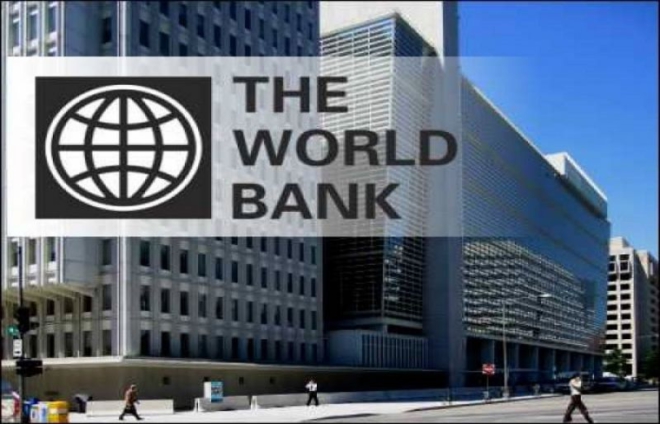The World Bank has commended Ghana for considerable progress in economic and social progress in the past 30 years, saying, it achieved middle-income status in 2011 because of strong, sustained economic growth, averaging over 5% since the early 1990s.
This is coming after the World Bank Group today discussed a new 5-year Country Partnership Framework for Ghana.
The CPF prioritises investments in human capital, job creation, economic diversification, building a resilient health system, and fostering a greener and more inclusive society.
The World Bank Group said Ghana’s economic and social progress has been supported by a stable democracy and driven largely by gold and cocoa exports and the development of substantial oil and gas reserves.
The country achieved the first Millennium Development Goal (MDG) of halving poverty from 52.7 percent (1993) to 23.4 percent (2016).
However, the pace of poverty reduction has slowed in recent years, and inequalities in some areas continue, particularly in some northern areas of the country.
The CPF will support Ghana in its COVID-19 and medium-term development agenda. It is designed around three mutually reinforcing focus areas, namely: Enhancing Conditions for Private Sector Development and Quality Job Creation; Improving Inclusive Service Delivery; and Promoting Resilient and Sustainable Development. Exploiting the opportunities of digital transformation will be a cross-cutting theme.
The $4.5 billion CPF was prepared jointly by the World Bank, the International Finance Corporation (IFC) and the Multilateral Investment Guarantee Agency (MIGA).
“The World Bank Group is happy to support Ghana’s economic recovery plan. The CPF is aligned with Ghana’s Coordinated Program of Economic and Social Development Policies and will support the Government of Ghana in creating a competitive environment for the private sector to flourish and play a greater role in job creation particularly for youth,” said Pierre Laporte, World Bank Country Director for Ghana, Liberia and Sierra Leone.
“The World Bank Group, through the CPF, will also support policies and programs that aim to strengthen digital transformation for improved service delivery and productivity, improve governance, and promote greater inclusion, including strengthening women’s economic empowerment”, Mr. Laporte said.
The social and economic impact of the COVID-19 crisis has been significant, the World Bank said.
Ghana was one of the earliest countries in Africa to announce social distancing measures, including school closures and cancelling of mass gatherings, complemented by aggressive testing and recently a strong vaccination program. These measures - while saving lives - came at a heavy economic cost in the immediate term.
The CPF will address the immediate as well as medium-term implications of the COVID-19 crisis in line with the Ghana Coronavirus Alleviation and Revitalization of Enterprises Support program and lay a path on how the World Bank, IFC, and MIGA, will leverage their relative strengths to partner with Ghana for stronger development outcomes.
“To stimulate diversified private sector growth and create secure jobs, the World Bank Group will support a competitive environment for enterprise development,” said Kyle Kelhofer, IFC Senior Country Manager for Benin, Ghana, Liberia, Sierra Leone, and Togo.
“IFC will continue to work closely with the Government of Ghana and the private sector to provide investment and advisory services to expand access to finance for small businesses and entrepreneurs, enhance agribusiness productivity, and support Ghana’s sustainable industrialization”, Mr. Kelhofer.
“The CPF focuses on improving the investment climate and enacting regulatory reforms. Succeeding in these reforms would be critical for accelerating private sector development,” said Merli Baroudi, MIGA’s Director of Economics and Sustainability.
The CPF will move towards larger and more cohesive and transformational interventions, potentially across multiple sectors, that align closely to strong government programs and with greater use of results-based financing, where appropriate. It is designed to be flexible, especially during its early years of implementation, with an early review of progress to accommodate needed changes for a post COVID-19 recovery.
Latest Stories
-
Togbe Afede destools Dutor of Ho-Bankoe, Togbe Afiatsoa III, over alleged disrespect and misconduct
10 minutes -
Closing the Gap: How Technology is Curbing Tax Revenue Leakages in Ghana
11 minutes -
GhIE and Engineering Council to get rid of unlicensed engineers by July 2025
11 minutes -
Hohoe Presby Ghana Basic School wins Led Concept Global Quiz competition
15 minutes -
Declare a ‘state of emergency’ over Lake Bosomtwe to save it from drying – Scientists appeal to Asantehene
25 minutes -
Stayter Cup 2025: Asanska FC beat Siktad Academy to win inaugral edition
32 minutes -
Gov’t to facilitate safe return of US deportees – Ablakwa
35 minutes -
Be ready to access markets by meeting required standards – Goosie Tanoh
36 minutes -
Denis Marfo receives call-up to Ghana’s U-20 squad ahead of AFCON
44 minutes -
MEST Africa, Mastercard Foundation announce selection of 12 companies for second cohort of EdTech Fellowship in Ghana
45 minutes -
Broken promises of a 30-year lease – Damang Youth demand accountability from Goldfields
59 minutes -
Africa Energy Chamber advocates strategies to close about $20bn annual Africa energy infrastructure deficit
60 minutes -
Author Ralph to celebrate 20 years of book writing and publishing
1 hour -
Ghana is bleeding billions – Can we afford to stay silent?
1 hour -
Accra dysfunctional streetlights raise safety concerns
1 hour

